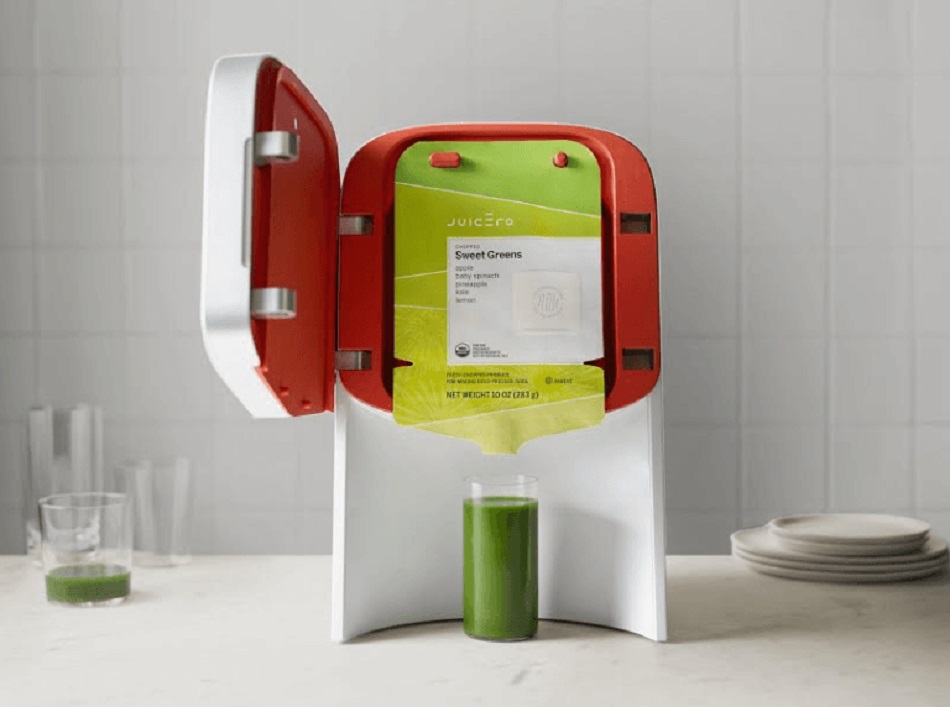Lance Armstrong isn’t the world’s most famous juicer anymore. Or maybe he still is, but Juicero is getting close. At $700, the cold-press juicer is among the costliest kitchen appliances around, and perhaps one of the more ludicrous products to come out of the burgeoning smart home movement.
People have poured over $90 million into the venture, including ARTIS Ventures, GV (VC arm of Google), Abstract Ventures, and Thrive Capital. That’s a lot of money and trust to repose in a trendy kitchen appliance, but if the cold-pressed craze stays hot, they may be in for a juicy return.
Squeezing the juice out of fruit and vegetables isn’t all Juicero does. Wrapping your head around the inner workings of this startup requires you to go on a journey that starts at a farm, and culminates in an expensive but healthy glass of pressed greens.
Juicero partners with certified organic farms to source produce. All fruits and vegetables are cleaned through a meticulous triple-wash process and chilled to maintain freshness. The produce is then “custom chopped” by a crew stationed at Juicero’s warehouses in LA.
The chopped produce is placed in packs which need to be inserted in the juicer to initiate the juicing process. There are currently five packs on offer: Greens, Spicy Greens, Sweet Greens, Carrot Beet, and Sweet Roots; each is priced between $5 and $7. More flavors are being tested for launch soon.
This is where we encounter a second big problem with Juicero (the first being the price): the juicer can only process the packs containing its chopped, packaged produce. You can’t just stick a fruit or vegetable bought at the local grocery store in it. If you put the packs in a refrigerator, they last six days; the device automatically rejects expired packs using information gleaned from an imprinted QR code.
Coming to the juicer itself, the thing looks pretty cool. The sexy aesthetics aren’t surprising considering Silicon Valley stalwarts like Yves Behar have had a part to play in its design. It isn’t all looks, though; the device is made using aircraft grade aluminum and the press inside produces thousands of pounds of force while converting the chopped produce to juice.

Juicero comes with WiFi connectivity. This is used to keep a component called “The Press” online via an app available on Android and iPhone. The juicer receives updates regarding optimum settings for new flavors over the Internet. The app can also be used to track how many packs remain and will notify customers when any of them is close to expiring. Don’t be surprised if pretty soon, the device starts placing replenishment orders automatically, a la Amazon Dash or something similar.
Juicero is an ambitious undertaking encompassing a whole supply chain, but at first glance, no matter how healthy or tasty the drinks are, the whole thing seems wasteful, limiting and overpriced all at the same time. That being said, when millions people are willing to pay $11 for 330ml of smooshed kale with a splash of turmeric, maybe those three qualities hold little water compared to the power of the press.


